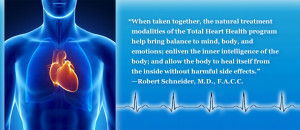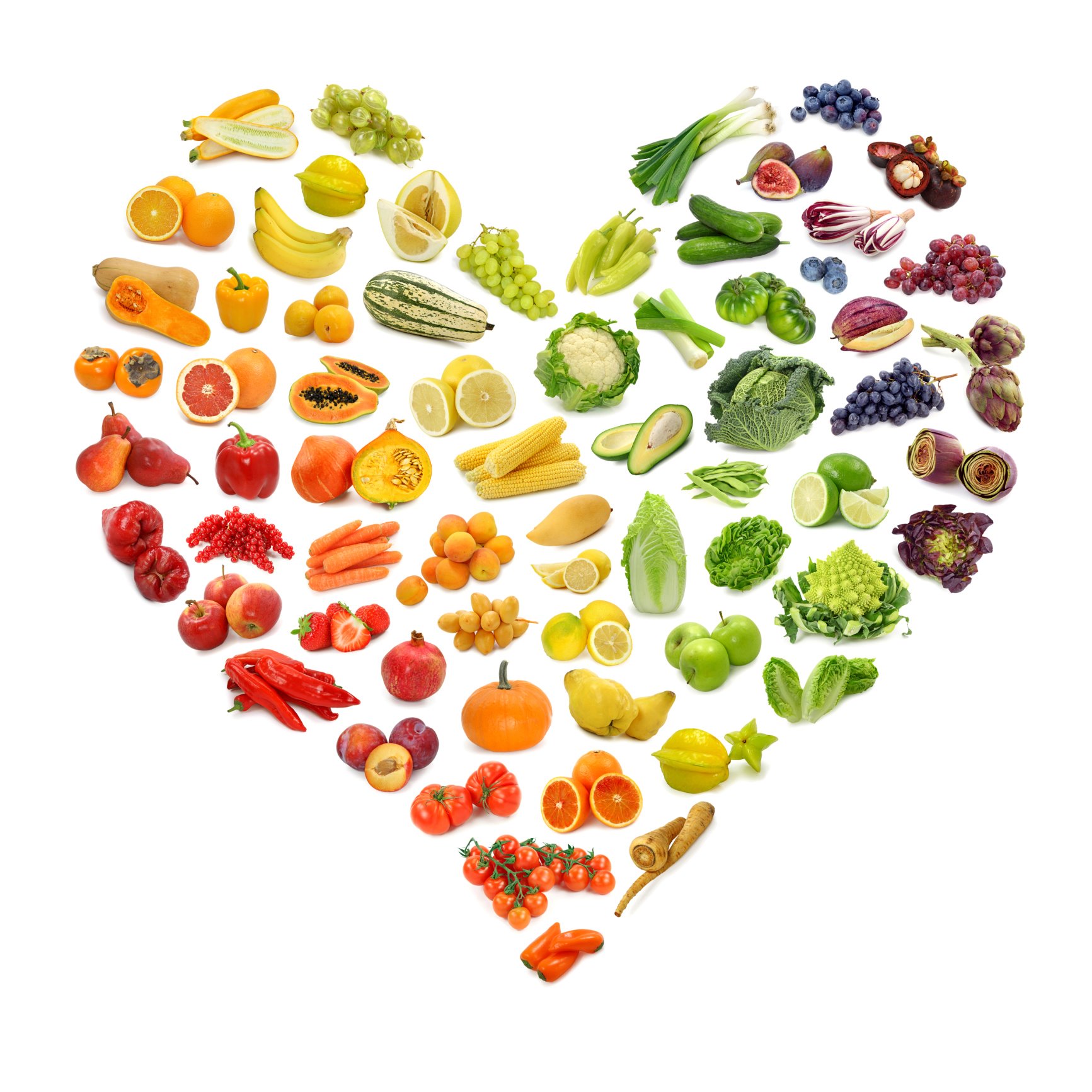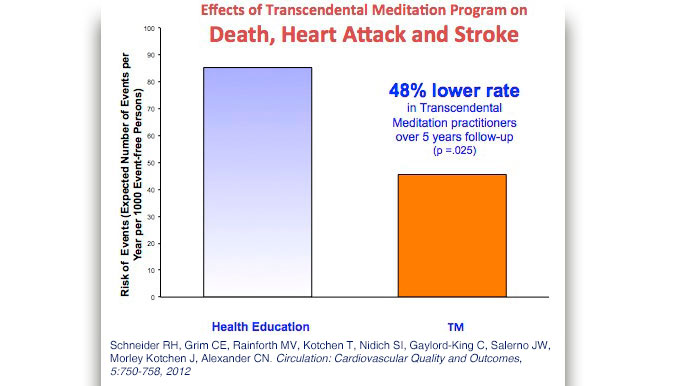 This section contains 3 sections Blood Pressure, Cholesterol and Heart Health
This section contains 3 sections Blood Pressure, Cholesterol and Heart Health
Around 40% of adult Australians have hypertension (high blood pressure) but the cause is unknown for the majority. Hence it is called “essential hypertension”. According to Maharishi Ayurveda, hypertension is a result of excess pressure on Vyana Vata (circulation of energy and blood) as a result of any of the 3 ![]() doshas.
doshas.
It can be due to aggravated Vata if you constantly worry, rush, live an erratic lifestyle and/or eat excess Vata increasing foods; aggravated Pitta if you constantly push youself, are often angry and over critical and/or consume excess alcohol. salt or hot spicy food; aggravated Kapha if you are sedentary, overweight, depressed and/or eat excess oily sweet, sour and salty foods..
To reduce high blood pressure recommends to exercise regularly, normalise your weight, reduce salt and alcohol consumption, stop smoking and eat more fruit and vegetables. Maharishi Ayurveda refines this good advice by adjusting it according to your predominant dosha.

Once you know the underlying dosha imbalance that is causing your high blood pressure, you can begin to restore balance to your blood pressure and whole mind-body system by following the diet, daily routine, exercise program and dietary herbal supplements for your specific type of dosha imbalance.
Well designed studies published in top medical journals confirm that regular practice of Transcendental Meditation can also reduce mild to moderate hypertension. The CSIRO Healthy Heart program published in 2008 states, “A recent report suggests that evidence is not strong enough to recommend general meditation as a treatment for high blood pressure. A specific form of meditation, however, known as Transcendental Meditation, has been shown to be very effective”.
For more information click here for blood pressure scientific research on the Total Heart Health Program. Do the Dosha Quiz to get an idea of which dosha is currently most imbalanced in your mind/body. For detailed assistance Find a Practitioner.

We have all heard that high cholesterol is a major risk factor for heart attacks. More recently it has been found that oxidised (rancid) fats and inflammation also predispose to the formation of plaque (cholesterol build up) in the arterial walls. If the plaque is fragile it may rupture resulting in a blood clot which blocks the blood flow to the heart muscle. This is how a heart attack occurs.
Dietary fats play an important role in this process. Blood cholesterol is increased by the intake of red meats (high in cholesterol and long chained saturated fats which are incompletely metabolised) as well as commercial baked goods and margarines which can contain large amounts of “trans” fats. Deep fried foods as well as overheated oils and nuts produce a lot of free radicals which oxidise (make rancid) cholesterol causing it to stick to and form plaques in the artery walls. Most vegetable oils and margarines promote oxidation as well as inflammation and hence plaque formation.
On the other hand olive oil (high in healthy monosaturated fats), walnuts, almonds and other nuts in moderation all lower your blood cholesterol. Oatmeal, apples, pears, and barley (all high in solbule fibre) reduce the absorption of cholesterol into your blood.
Ghee (clarified butter), which is highly recommended in Ayurveda, is rich in the healthy monounsaturated fats, natural antioxidants and anticancer agents. It does contain cholesterol and saturated fats but its saturated fats are mosly short chained which are more easily metabolised. Hence it does not increase cholesterol when taken in moderation.
The liver also plays a major role in heart disease. It produces most of our cholesterol (generally more than what we consume) and in particular produces the “good” cholesterol (HDL cholesterol) which removes the “bad” more easily oxidised cholesterol (LDL cholesterol).
According to Maharishi Ayurveda, weak Agni (digestion and metabolism) is the fundamental cause of plaque formation. Inefficient digestion and metabolism (including that in the liver) results in the accumulation of incompletely processed nutrients and toxins produced by the body or from the envirnonment. This incompletely processed matter is known as ama. It includes the products of oxidation (Vata ama), inflammatory products (Pitta ama) and high levels of “bad” cholesterol and sugar (Kapha ama). Ama is a sticky toxic waste which binds to and blocks the micro and macro circulatory channels such as arteries causing any aggravated doshas to localise there and disrupt the surrounding tissues. As a result plaque forms in the lining of the arteries leading to heart attacks down the track . Do our Ama questionaire to check your levels.
Hence in addition to our choice of dietary fats, to correct the imbalance underlying cholesterol problems it is important to clear ama, enhance digestion and metabolism and support the liver function. Your Maharish Ayurveda Consultant will guide you how to do this and how to adjust the recommendations listed below to your specific imbalance
To correct the imbalance underlying cholesterol build up in the walls of your arteries it is important to avoid:
And to favour:
Please note that these recommendations dont replace the advice or treatment recommended by your doctor.
According to Ayurveda, the heart is the seat of all the doshas and an impbalance in any one of the 3 doshas can result in heart disease. It is the seat of Vyana Vata (regular heart rate & circulation), Sadhaka Pitta (emotions) and Avalambaka Kapha (structure, stablility and strength of the heart muscle). It is also the seat of Ojas, the most refined product of digestion and metabolism, which is responsible for vitality, happiness, immunity and longevity.

Sadhaka which governs the emotions can be influenced by any of the 3 doshas. When Sadhaka is disturbed by Vata you may experience fear, anxiety, doubts and mood swings. When it is distubed by Pirra you can be easily angered, hostile or frustrated. When it is disturbed by Kapha you can be unmotivated, unfulfilled, depressed and lack self worth.
It is now recognised that negative emotional states increase your risk of heart disease – especially feeling chronically depressed, hostile or angry, low self-esteem, low sense of social support, stress at work or at home, and poor capacity to cope with stressful situations.
According to Maharishi Ayurveda happiness is the best medicine for the heart. Hence it is not surprising that the calm and happiness that results from regular practice of Transcendental Meditation (TM), has been shown to be a highly effective tool to prevent heart disease.
Transcendental Meditation reduces heart disease by 48%
“Strongest Study Yet Shows Meditation Can Lower Risk of Heart Attack and Stroke.”—TIME Magazine.
This headline is based on an NIH-sponsored, 10-year clinical trial of Transcendental Meditation that was published Nov 2012 by the American Heart Association. The results showed 48% lower rate of death, heart attack and stroke in heart disease patients who practiced the TM programme for 5.4 years.

The AHA considered the article so groundbreaking that it issued its own new release to the press. See HERE the original article. PDF of original scientific publication. FORBES article.
For more info on research see TM and heart health.
To correct the imbalance underlying heart problems and to support heart health, it is also important to avoid:
And to favour: